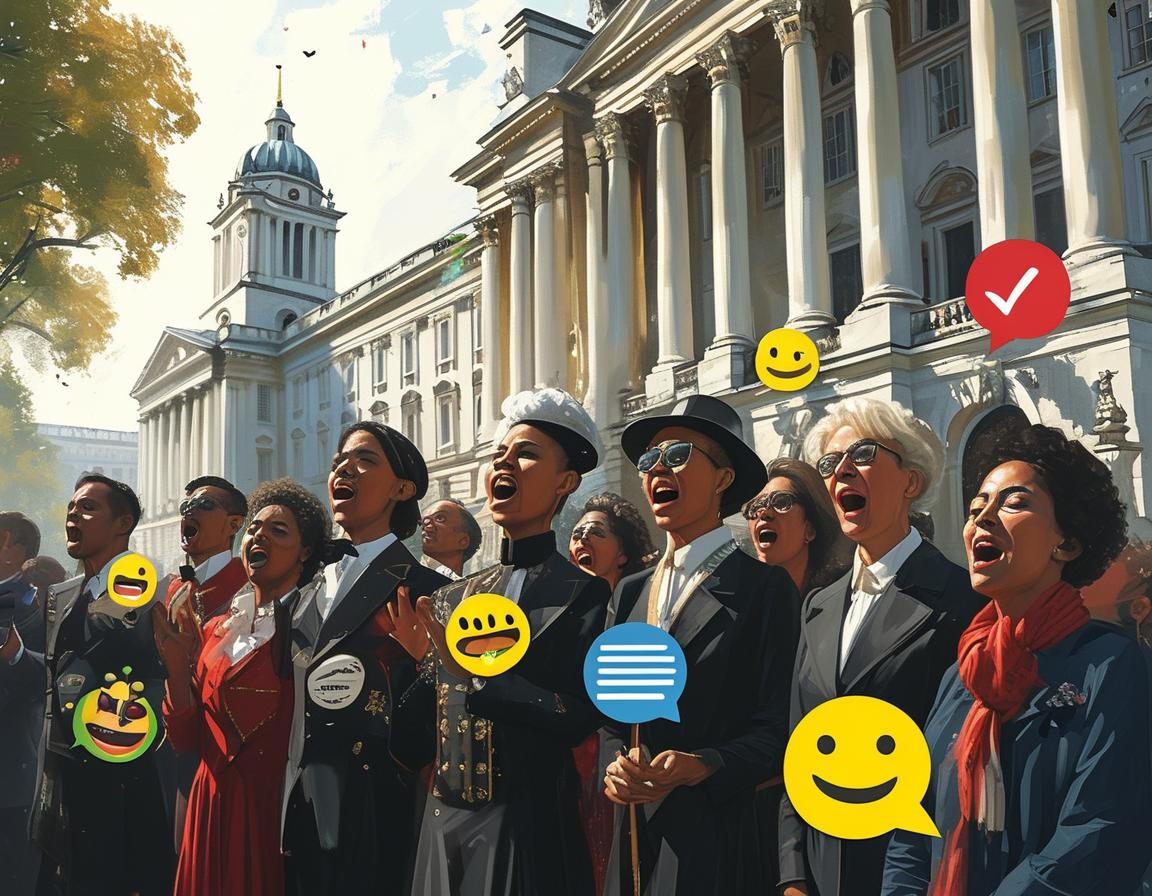
In a world where social media reigns supreme, even the most solemn events morph into memes. Picture this: thousands gathered before Buckingham Palace, united in singing ‘God Save the King.’ It’s a heartfelt moment—solemn, respectful, and deeply ingrained in British tradition. But, wait. Enter the internet, a swirling sea of wit and irony, and suddenly, that solemnity is not just a moment of reverence. It’s ripe for a laugh.
In a blink, a Romanian comment surfaced, and it changed everything. ‘Așa o să cântăm și noi când o să moară Iliescu!’ This translation: ‘We’ll sing like this too when Iliescu dies!’ might seem flippant to some, but it struck a chord. This unexpected twist turned a somber tribute into a source of humor, revealing how serious events can fuel political satire. But why?
Solemn occasions, meant to evoke a serious response, often become the perfect fodder for satire. The gathering and the solemn song spoke volumes about national identity and unity. Yet, as we dive into the dynamics of humor, we discover that its roots can often stem from political complexities. The irony here is almost poetic; the weight of tradition meets the relentless tide of online humor, and the mix conjures something both serious and absurd.
In Romania, the shadow of Ion Iliescu looms large. A figure wrapped in controversy, his political legacy elicits a range of feelings, from respect to ridicule. Joking about him isn’t merely humor. It’s a coping mechanism. Society employs this tactic to deal with complicated histories, often using laughter to mask discontent. Isn’t it fascinating how humor can serve as a medium for public sentiment?
In the UK, the monarchy is a symbol of unity, yet it faces scrutiny. Public displays of loyalty exist side by side with critiques. Love for the monarchy can coexist with sharp wit, and that duality is where humor thrives. And while contrasting views exist, humor allows people to voice their opinions in a way that’s digestible and perhaps a bit cheeky.
This Iliescu comment is not just a viral quip; it’s a symptom of deeper sentiments. Laughter can be a shared experience, binding individuals within a community. When this comment spread like wildfire, it was more than just humor—it was a calling. It demonstrated how powerful shared sentiments can be in the digital age.
The speed at which social media amplifies messages is staggering. The comment about Iliescu saw rapid likes and shares, catching fire among people eager to engage with something that resonated with them. This reflects our times. Short, punchy humor spreads quickly, connecting people over shared frustrations or experiences. It’s more than light-hearted banter; it’s a conversation starter.
The very essence of humor is a mirror reflecting society’s fears and frustrations. The response to the British royal ceremony, paired with the Romanian context, illustrates that humor transcends borders. When solemnity meets satire, it creates a space for dialogue about politics, memory, and collective identity.
In this digital age, where nothing is sacred, it’s worth contemplating what these comedic comments mean. Are they just jokes, or are they meaningful critiques? The laughter in such instances serves to mask underlying issues, yet they also shine a light on aspects of our shared political experiences.
Why do we laugh? Is it simply to entertain, or do these moments reveal deeper yearnings or discontent? In the end, memes and humor are now part of our culture, where even the most respectful moments can inspire mischievous commentary. Through shared laughter, we grapple with reality, turning the solemn into a source of amusement. The boundary between respect and ridicule continues to blur, demonstrating society’s complex relationship with both humor and authority.
Leave a Comment